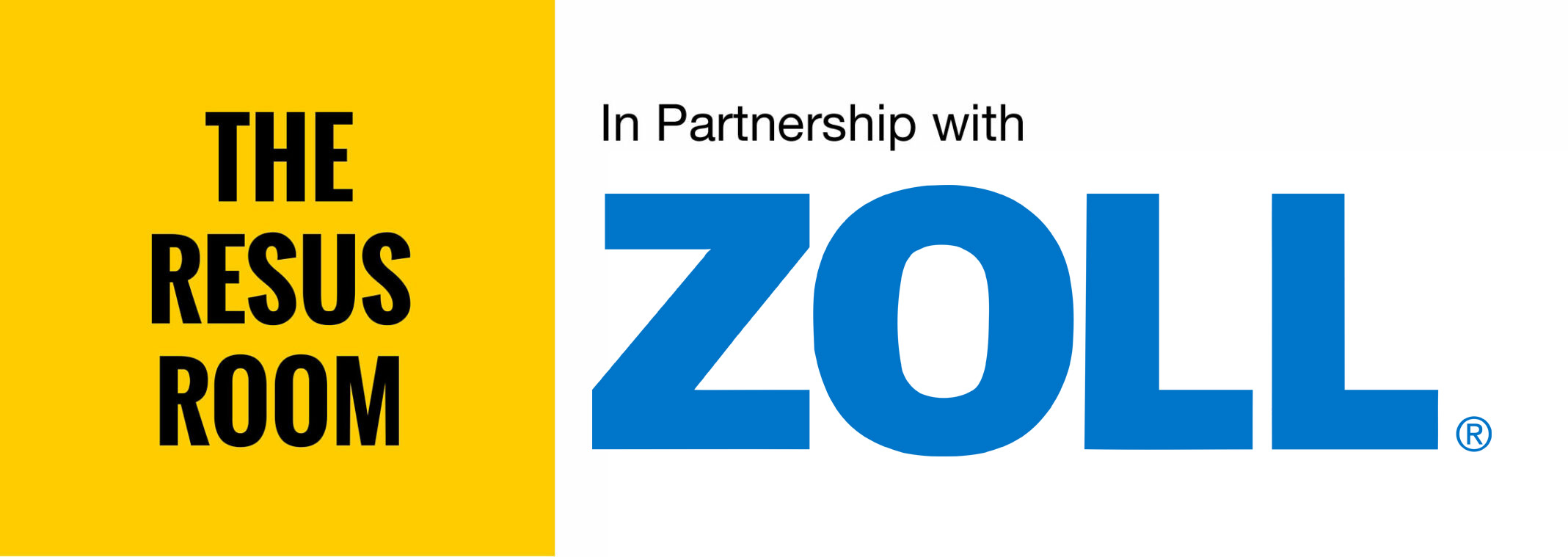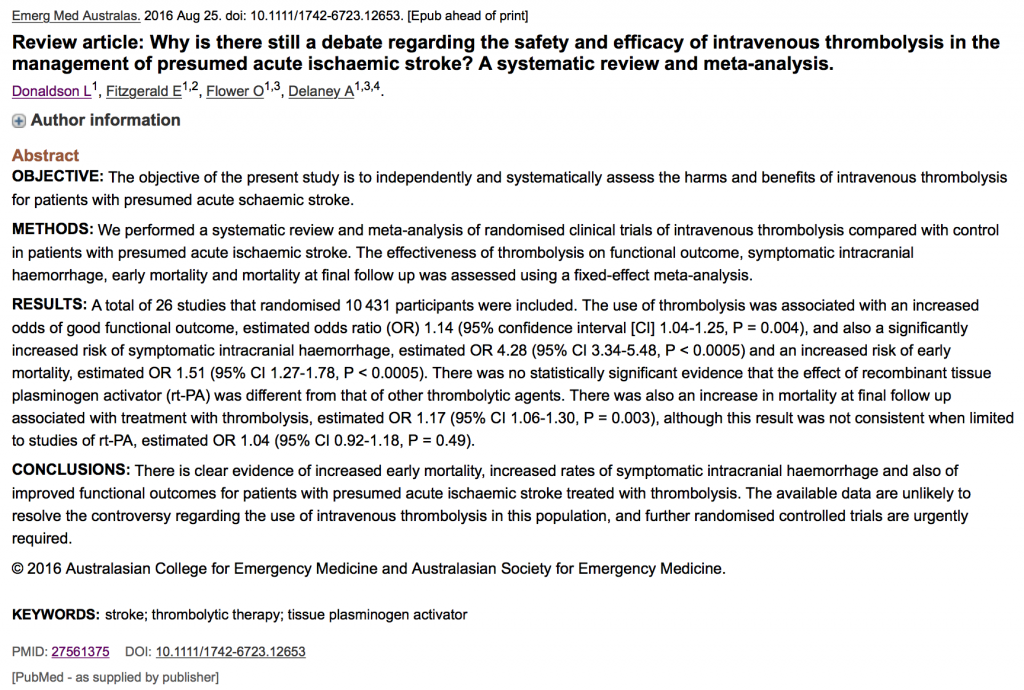Stroke thrombolysis has definitely put the spotlight back on to the topic of stroke care over the last few years.
Thrombolysis led to restructuring of stroke care in the UK and has helped drive investment in stroke care. The evidence base that underpins thrombolysis has been controversial to say the least and can be difficult to comprehend.
The article, published in the the Emergency Medicine Australasia Journal is a great place to start to get to grips with the topic.
In the podcast we run through the paper and hopefully this will shed act as a good recap on the topic and lead you to delve into the primary literature and form your own opinion.
Enjoy!
References
NICE; Patient Information for Stroke Thrombolysis






Fantastic article
Thanks Maureen, great to get feedback and glad it was useful
Very interesting article, and great discussion/podcast about it! Keep up the good work, you have the best medicine podcast by far.
Thanks Sauli, that’s really kind of you to say
great review and discussion.
it is really difficult explaining the numbers to the patient or families…
how do you explain it in percentages or easier numbers??
thanks
Thanks Shata, very kind.
Realistically the setup in the UK means that most patients are consented for their thrombolysis by the stroke team and therefore I don’t get the opportunity to be involved with what would be an extremely difficult treatment to explain.
From an UK EM point of view though, being the link between the patient and Stroke services is where our responsibility really lies, by assessing the risk that the presentation is due to a stroke, assessing if the symptoms are resolving and considering the benefit of ruling other causes out versus immediately funneling somebody down a thrombolysis pathway that can then be difficult to stop.
Being armed with some knowledge around the debatable literature that the treatment is built upon helps give context to our decision making and prevent the hysteria about getting a lytic into a patient ASAP, when frequently the best thing may be to take a step back and look at the bigger picture.
Glad you enjoyed the podcast!